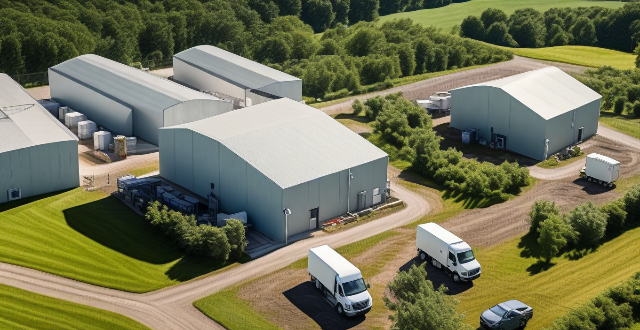Waste reduction significantly impacts the waste management industry by affecting collection, transportation, processing, and disposal aspects. It leads to cost savings, optimized routes, smaller vehicles, lower energy consumption, extended landfill lifespan, increased efficiency, job losses, market opportunities, reduced greenhouse gas emissions, conservation of natural resources, improved air and water quality, increased public awareness, community engagement, and a healthier environment.

How Does Waste Reduction Affect the Waste Management Industry?
Waste reduction plays a significant role in shaping the waste management industry. By reducing the amount of waste generated, it impacts various aspects of waste management, including collection, transportation, processing, and disposal. Let's delve into the details of how waste reduction affects the waste management industry:
Collection and Transportation
- Reduced Frequency: With less waste being produced, there is a decreased need for frequent waste collection. This leads to cost savings for municipalities and waste management companies.
- Optimized Routes: Fewer collections mean that routes can be optimized to reduce travel time and fuel consumption, further reducing costs and environmental impact.
- Smaller Vehicles: The demand for smaller waste collection vehicles may increase, as they are more suitable for handling reduced volumes of waste.
Processing and Disposal
- Lower Energy Consumption: Less waste means less energy is required for processing and disposal. This results in cost savings and reduced greenhouse gas emissions.
- Extended Landfill Lifespan: Reduced waste volumes extend the lifespan of existing landfills, delaying the need for new landfill sites and associated costs.
- Increased Efficiency: Waste processing facilities can operate more efficiently with less waste to handle, leading to improved productivity and reduced operational costs.
Economic Impact
- Job Losses: Waste reduction may lead to job losses within the waste management industry, as fewer workers are needed to manage reduced waste volumes.
- Shift in Employment: Workers may need to transition to other industries or focus on recycling and recovery efforts within the waste management sector.
- Market Opportunities: Waste reduction creates market opportunities for businesses offering waste reduction solutions, such as recycling services and waste prevention products.
Environmental Impact
- Reduced Greenhouse Gas Emissions: Less waste means fewer emissions from collection vehicles, processing facilities, and landfills.
- Conservation of Natural Resources: Waste reduction conserves natural resources by reducing the need for raw materials in manufacturing processes.
- Improved Air and Water Quality: Reduced waste volumes lead to improved air and water quality, as there is less pollution from waste processing and disposal activities.
Social Impact
- Increased Public Awareness: Waste reduction initiatives raise public awareness about the importance of reducing waste and promoting sustainable practices.
- Community Engagement: Waste reduction efforts often involve community engagement, fostering a sense of collective responsibility for waste management issues.
- Healthier Environment: A reduction in waste leads to a healthier environment, benefiting both current and future generations.
In conclusion, waste reduction has a profound impact on the waste management industry. It affects various aspects of the industry, from economic considerations to environmental and social implications. While waste reduction presents challenges for the industry, it also creates opportunities for innovation and growth in sustainable waste management practices.